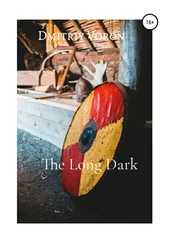Douglas Adams
The Long Dark Tea-Time Of the Soul
It can hardly be a coincidence that no language on Earth has ever produced the expression "as pretty as an airport".
Airports are ugly. Some are very ugly. Some attain a degree of ugliness that can only be the result of a special effort. This ugliness arises because airports ane full of people who are tired, cross, and have just discovered that their luggage has landed in Murmansk (Murmansk airport is the only known exception to this otherwise infallible rule), and architects have on the whole tried to reflect this in their designs.
They have sought to highlight the tiredness and crossness motif with brutal shapes and nerve jangling colours, to make effortless the business of separating the traveller for ever from his or her luggage or loved ones, to confuse the traveller with arrows that appear to point at the windows, distant tie racks, or the current position of Ursa Minor in the night sky, and wherever possible to expose the plumbing on the grounds that it is functional, and conceal the location of the departure gates, presumably on the grounds that they are not.
Caught in the middle of a sea of hazy light and a sea of hazy noise, Kate Schechter stood and doubted.
All the way out of London to Heathrow she had suffered from doubt. She was not a superstitious person, or even a religious person. she was simply someone who was not at all sure she should be flying to Norway. But she was finding it increasingly easy to believe that God, if there was a God, and if it was remotely possible that any godlike being who could order the disposition of particles at the creation of the Universe would also be interested in directing traffic on the M4, did not want her to fly to Norway either. All the trouble with the tickets, finding a next-door neighbour to look after the cat, then finding the cat so it could be looked after by the next-door neighbour, the sudden leak in the roof, the missing wallet, the weather, the unexpected death of the next-door neighbour, the pregnancy of the cat - it all had the semblance of an orchestrated campaign of obstruction which had begun to assume godlike proportions.
Even the taxi-driver - when she had eventually found a taxi- had said, "Norway? What you want to go there for?" And when she hadn't instantly said, "'The aurora borealis!" or "Fjords!" but had looked doubtful for a moment and bitten her lip, he had said, "I know, I bet it's some bloke dragging you out there. Tell you what, tell him to stuff it. Go to Tenerife."
There was an idea.
Tenerife.
Or even, she dared to think for a fleeting second, home.
She had stared dumbly out of the taxi window at the angry tangles of traffic and thought that however cold and miserable the weather was here, that was nothing to what it would be like in Norway.
Or, indeed, at home. Home would bc about as icebound as Norway right now. Icebound, and punctuated with geysers of steam bursting out of the grnund, catching in the frigid air and dissipating bctween the glacial cliff faces of Sixth Avenue.
A quick glance at the itinerary Kate had pursued in the course of her thirty years would reveal her without any doubt to be a New Yorker. For though she had lived in the city very little, most of her life had been spent at a constant distance from it. Los Angeles, San Francisco, Europe, and a period of distracted wandering around South America five years ago following the loss of her newly mamed husband, Luke, in a New York taxihailing accident.
She enjoyed the notion that New York was home, and that she missed it, but in fact the only thing she really missed was pizza. And not just any old pizza, but the sort of pizza they brought to your door if you phoned them up and asked them to. That was the only real pizza. Pizza that you had to go out and sit at a table staring at red paper napkins for wasn't real pizza however much extra pepperoni and anchovy they put on it.
London was the place she liked living in most, apart, of course, from the pizza problem, which drove her crazy. Why would no one deliver pizza? Why did no one understand that it was fundamental to the whole nature of pizza that it amved at your front door in a hot cardboard box? That you slithered it out of greaseproof paper and ate it in folded slices in front of the TV? What was the fundamental flaw in the stupid, stuck-up, sluggardly English that they couldn't grasp this simple principle? For some odd reason it was the one frustration she could never learn simply to live with and accept, and about once a month or so she would get very depressed, phone a pizza restaurant, order the biggest, most lavish pizza she could describe - pizza with an extra pizza on it, essentially - and then, sweetly, ask them to deliver it.
"To what?"
"Deliver. Let me give you the address - "
"I don't understand. Aren't you going to come and pick it up?"
"No. Aren't you going to deliver? My address - "
"Er, we don't do that, miss."
"Don't do what?"
"Er, deliver. . ."
"You don't deliver? Am I hearing you correctly... ?"
The exchange would quickly degenerate into an ugly slanging match which would leave her feeling drained and shaky, but much, much better the following morning. In all other respects she was one of the most sweet-natured people you could hope to meet.
But today was testing her to the limit.
There had been terrible traffic jams on the motorway, and when the distant flash of blue lights made it clear that the cause was an accident somewhere ahead of them Kate had become more tense and had stared fixedly out of the other window as eventually they had crawled past it.
The taxi-driver had been bad-tempered when at last he had dropped her off because she didn't have the right money, and there was a lot of disgruntled hunting through tight trouser pockets before he was eventually able to find change for her. The atmosphere was heavy and thundery and now, standing in the middle of the main check-in concourse at Terminal Two, Heathrow Airport, she could not find the check-in desk for her flight to Oslo.
She stood very still for a moment, breathing calmly and deeply and trying not to think of Jean-Philippe.
Jean-Philippe was, as the taxi-driver had correctly guessed, the reason why she was going to Norway, but was also the reason why she was convinced that Norway was not at all a good place for her to go. Thinking of him therefore made her head oscillate and it seemed best not to think about him at all but simply to go to Norway as if that was where she happened to be going anyway. She would then be terribly surprised to bump into him at whatever hotel it was he had written on the card that was tucked into the side pocket of her handbag.
In fact she would be surprised to find him there anyway. What she would be much more likely to find was a message from him saying that he had been unexpectedly called away to Guatemala, Seoul or Tenerife and that he would call her from there. Jean-Philippe was the most continually absent person she had ever met. In this he was the culmination of a series. Since she had lost Luke to the great yellow Chevrolet she had been oddly dependent on the rather vacant emotions that a succession of self-absorbed men had inspired in her.
She tried to shut all this out of her mind, and even shut her eyes for a second. She wished that when she opened them again there would be a sign in front of her saying "This way for Norway" which she could simply follow without needing to think about it or anything else ever again. This, she reflected, in a continuation of her earlier train of thought, was presumably how religions got started, and must be the reason why so many sects hang around airports looking for converts. They know that people there are at their most vulnerable and perplexed, and ready to accept any kind of guidance.
Читать дальше








